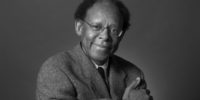I grew up worshipping the Bible.
The Bible was the main source of truth–God’s instruction book for life.
Perhaps more than anything else, being a Christian meant believing the Bible. And if you believed the Bible, you had to believe the whole Bible. Everything in the Bible happened exactly as it said it did. We believed in the Genesis creation account. We believed in the miracles. We believed that Jonah was in the belly of a fish. We believed in talking donkeys as much as “love your neighbor”.
Any statement in the Bible was not only spiritually true, but also historically and scientifically. We used the Bible to show that the earth was only about 6,000 years old (give or take a few thousand). We challenged scientific teachings by quoting passages from the Bible. Science was either anti-biblical, or managed to learn things that had been in the Bible the whole time.
We spent a lot of time learning the Bible. We had a sermon on Sunday morning, Sunday school for deeper study, Sunday night Bible study, and back on Wednesday night for more. In between, we were expected to read and study the Bible on our own. As kids, we were taught to memorize the Bible and participated in intense competitions with other churches to show how much we had learned.
We appreciated biblical sermons that went verse by verse and explained things about “the original Greek”. We tolerated ‘topical’ sermons, as long as every point was clearly supported by any verse from the Bible.
We tried to apply the Bible to our lives. Being ‘biblical’ was the gold standard. Your life should be biblical. Your teaching should be biblical. Culture wasn’t biblical and therefore should be condemned. Biblical principles should be applied to education, business, health care, and of course, politics. We got excited when the Ten Commandments were put up in government buildings.
We also deeply put our identity in the Bible. We saw ourselves as direct descendants of Moses. We supported the nation of Israel. We were part of the Judeo-Christian culture. These were our stories.
Cracks in the system
We thought our religion was airtight and could stand up to any attack. But to live in such a system required a lot more flexibility than we admitted.
We claimed that we believed “all of the Bible or none of it”, but that was never practiced. We ignored Jewish dietary laws and commands to stay away from tattoos in the Old Testament. We glossed over books like 1 and 2 Chronicles that changed facts mentioned in other parts of the Bible in order to reset a narrative.
We claimed to be a New Testament church, but didn’t follow rules about head coverings and braided hair. We practiced the Lord’s Supper, but not foot washing.
When we interacted with serious Bible scholars who asked us to consider that the Bible was man-made, we said they had lost their faith and couldn’t be trusted. When prophets chastised us for not serving the poor or loving our enemies, we told them they were taking it too seriously.
It was clear to an outsider that the Bible was used to support our evangelical culture, not to change it.
How I view the Bible now
Like many others, as an adult, I struggled to understand how to make sense of this. I deeply believed it all, but I knew something was wrong.
But when you start to pull at a single thread, sometimes the whole garment comes apart.
I went through a serious deconstruction of faith in my life, deeply accelerated by spending six years in India.
Deconstruction was painful, yet necessary. But now it’s time to rebuild something that can stand up firmly. Something I can rest on throughout my life. Something I can offer to my children that they won’t have to totally raze when they become adults.
I learned too many good things from my time studying the Bible to throw it all away. It’s still deeply important to me, but I look at it differently now.
This perspective isn’t unique to me, but after a few decades of wrestling things out, this is where I feel most at peace.
I am a devotee of Lord Jesus
As I look back on the faith I grew up in, I notice how small of a role Jesus played. Jesus was important because he was a main character in the Bible. But we wanted culture to be biblical, not Christ-like.
For me, without Jesus, it all falls apart. I would have stopped being a Christian many years ago had it not been for Jesus. Much like the story in the Gospel According to John, I sometimes look around at others leaving because of his hard teachings. Like Peter, the Lord asks me, “Do you want to go, too?” Like Peter, I say, “Where else would I go? You have the words of eternal life.”
I am no longer a devotee of the Bible. I do not worship it. I respect and honor the Bible in as much as it reveals Christ to me. But my primary identity is a devotee of Christ.
Jesus said you cannot have two masters. For me, it is Lord Jesus, not the Bible.
I don’t view the books of the Bible equally
When asked what part of Torah was the most important, Jesus didn’t balk as my tradition would have done, claiming that it’s all true. Jesus quickly picked out two that were more central than any others.
Like my Lord, I see a natural hierarchy in our Bible. I consider the teachings of Christ to be the most important scriptures to my life.
The books of the Old Testament are valuable in that they establish the narrative that Jesus was born into. However, they are not authoritative for me in the same way.
The letters that make up the rest of the New Testament are helpful commentaries on what it means to follow Lord Jesus, and are worth deep study and reflection, but they don’t hold the same authority. They were not written to establish common beliefs or behaviors for all devotees across all time, but were written to specific communities to help them work out issues they faced in their own situations.
As a devotee of Jesus, I use his teachings as the standard against which I compare other Scripture. Where there is any conflict, I defer to the teachings of Christ.
I recognize that the teachings of Lord Jesus are not singular, and that he often taught in parables where the meaning is wrapped in a culture that we don’t have direct access to anymore.
So, claiming that the teachings of Christ are the final authority doesn’t make things neat and tidy, but that was never the goal.
I am a Gentile
I must always read myself as an outsider to the Jewish narrative. All the earliest devotees of Lord Jesus were Jewish, and I could not have joined them at the temple. At the time of Jesus, my people were considered barbarians living in northern Europe.
However, through the biblical narrative, I see that Gentiles are welcome to follow him. And, good news for me, I am not required to first become a Jew. I can keep my own culture as long as I put my devotion to Jesus before all things.
The Jewish stories are not part of my heritage, but many of them resonate deeply with me and add depth to my devotion.
The Bible has come to me through many filters
The 66 books in the Bible I grew up with were all written by men in a different language and culture than I know.
We do not have any original versions of these books. We have some relatively early copies, but mistakes could have been made, and some men might have intentionally changed passages to align with their beliefs or agenda.
Much later, these books were chosen by other men to be included in the current Bible. Other books were excluded. Over time, different groups of men have come up with different Bibles.
Chapters, verses, and especially section headings were added much later and these artificial breaks can affect how I read and interpret the Bible.
Any time the Bible is translated, it must be interpreted. Translators can never perfectly transition a thought from one language and culture to another. We don’t know those ancient cultures so well, and each language is unique, making certain concepts never fully translatable.
I do not dismiss the Bible as impossibly irrelevant because of all these filters it has to go through before it gets to me. But I do recognize that there are significant gaps that stand between the Bible I read today and the actual words of Lord Jesus.
The Bible has always been interpreted through each culture
There is not one universal interpretation of the Bible. As Pete Enns says, “All theology has an adjective.”
Everyone culture faces unique challenges and ideas that no other culture in history has faced. Therefore, the way one culture interprets and applies the Bible will be different than others.
The same goes for every other culture and people group in the world. Culture changes based on age, language, heritage, race, gender, sexual orientation, and more.
As our environments and life experiences change, the way we once interpreted and applied the Bible may also change over time. One interpretation will not last forever.
At times, these interpretations may seem contradictory, but we must remember that there isn’t one true one that we are either getting closer to or moving away from. We should respectfully listen to other interpretations, learn from them, allow them to shape our own, and rejoice that we have this freedom.
However, when another interpretation and application seems to go against Christ’s teachings, resulting in the devaluing, harm, or murder of other people, we should challenge that interpretation.
The Bible was not written to establish scientific or historical facts
It is wrong to assume that the Bible is in competition with science to establish facts about the way our world operates. Nothing in the Bible, including the creation story in Genesis, was written to establish facts, but to establish a narrative.
When established and emerging knowledge in science seems to contradict a fact in the Bible, we don’t need to get hung up about it. This Bible is wisdom literature, not scientific.
Similarly, it is missing the point to stress on how historically accurate the Bible is. It definitely includes many historical details, but it was not written as a historical document. Even the gospel writers were not concerned with giving the most accurate account of the life of Jesus, but in telling the stories and teachings.
I do believe there are stories in the Bible that point to supernatural events that our best scientific understanding today cannot explain. However, the Bible’s goal is not to freeze or mock scientific or historical knowledge. My faith doesn’t rest in the accuracy, but in the message.
Moving on
I’ll always place a lot of value in the Bible. But it’s not my God anymore. And I won’t let some bad views and interpretations of it stand in the way of those around me who need the love of Christ in their lives. Onward.



